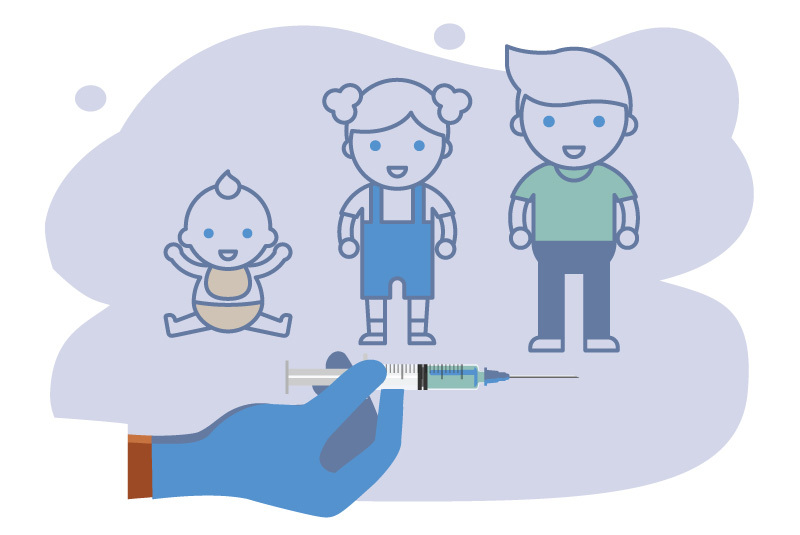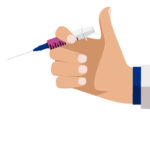COVID-19 vaccines for kids: What has to happen first

Now that adults and older teens are receiving COVID-19 vaccines, some younger kids are wondering why they can’t get vaccinated too. While testing has begun in children 6 months to age 12, we aren’t ready to begin vaccinating most kids yet. But we do know the steps the companies are taking to be sure their vaccines are safe and that kids respond to them. To learn more about the vaccine testing landscape in teens and children, we spoke with Dr. Richard Malley, senior physician in the Division of Infectious Diseases at Boston Children’s Hospital.
When can teens get vaccinated?
Currently there are three COVID-19 vaccines that have received emergency use authorization from the U.S. Food and Drug Administration (FDA). The Moderna and Johnson & Johnson vaccines are available for anyone age 18 and older; Pfizer’s is for those 16 and older.
Both Moderna and Pfizer are currently running clinical trials of their vaccines in kids as young as 12 and both companies have said they hope to see their vaccines available for those 12 and older by the start of the 2021 school year. Results from these trials are likely to be submitted to the FDA this summer, which will then decide whether or not to authorize these vaccines for this younger age group.
What about kids under age 12?
Of the three COVID-19 vaccine manufacturers whose vaccines are currently authorized in the U.S., Moderna and Pfizer have now started testing in children under age 12. Johnson & Johnson intends to develop trials for children, though we don’t have specific details yet.
In mid-March, Moderna began enrolling children as young as 6 months old in a clinical trial that will include about 6,700 healthy children under age 12. Pfizer’s trial will enroll 4,500 children grouped according to age — 5 to 11 years, 2 to 5 years, and 6 months to 2 years — starting with the 5-to-11-year-olds.
What has to happen before a vaccine is authorized for children?
“One of the first steps is to find the optimal doses for these kids,” Malley explains. The researchers will select the lowest dose needed to generate robust immune responses. Once this dose is found, the manufacturers plan to randomly assign two-thirds of the children to get the vaccine, with the remaining one-third to receive a placebo.
Researchers won’t be looking at the vaccines’ effectiveness in these studies. Instead, they will check for safety and that the kids produce an immune response to the vaccine. The FDA will then decide if it will authorize the vaccines for use in kids based on that safety and immune response information.
“It’s hard to pin down when we might have a vaccine for kids, since the manufacturers still have to find the right dose and test it in the various age groups,” says Malley. “But many are hopeful that we may have a vaccine for children by early 2022.”
Get more answers about our response to COVID-19
Related Posts :
-

Answers to your questions about the COVID-19 vaccine
Update: On May 10, 2021, the U.S. Food and Drug Administration (FDA) granted emergency authorization for use of the Pfizer vaccine ...
-

COVID-19 vaccines: Do you know myth from fact?
Two COVID-19 vaccines — from Pfizer/BioNTtech and Moderna — have received emergency use authorization in the United States by the ...
-

Getting COVID-19 vaccines to medically fragile children
As COVID-19 vaccines slowly roll out, should children who need complex care or have serious medical conditions be vaccinated? We ...
-

The COVID-19 vaccine for kids: When will children be vaccinated?
In late 2020, the U.S. Food and Drug Administration (FDA) gave emergency use authorization to two COVID-19 vaccines — one from ...





